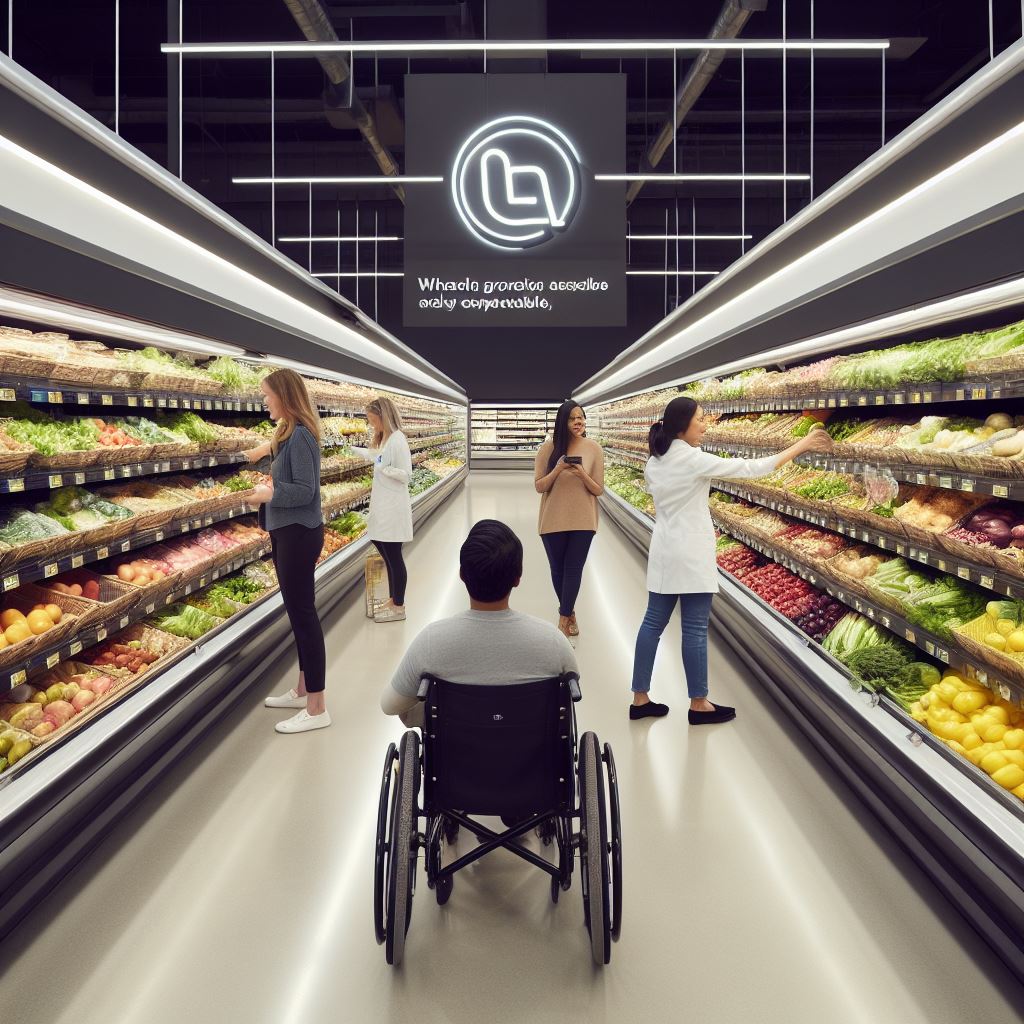5 Best Advantages of SNAP for the Disabled

Do you struggle to put nutritious food on the table due to disabilities?
SNAP, the Supplemental Nutrition Assistance Program, can be a game-changer for you. By providing financial assistance for food expenses, SNAP helps reduce food insecurity and improve your health and well-being.
In this article, we will explore the five best advantages of SNAP for the disabled, showcasing how it can enhance your quality of life.
Get ready to discover the benefits that await you.
Key Takeaways
- Increased access to nutritious food that promotes good health and well-being for individuals with disabilities.
- SNAP benefits provide financial assistance for food expenses, helping to bridge the gap and ensure that disabled individuals can afford healthy and nutritious food.
- SNAP significantly reduces food insecurity for individuals with disabilities by allowing them to stretch their food budget and purchase healthier options.
- Access to SNAP benefits improves the overall quality of life for individuals with disabilities by alleviating the burden of food expenses, promoting better nutrition, and encouraging social connection and participation in the community.
Increased Access to Nutritious Food
You can now enjoy increased access to nutritious food through SNAP if you’re disabled. The Supplemental Nutrition Assistance Program (SNAP) is designed to provide assistance to individuals and families with limited income, and this includes those who are disabled. SNAP offers a range of benefits, one of the most significant being the ability to access nutritious food that promotes good health and well-being.
Having a disability can often bring additional financial challenges, making it difficult to afford healthy and nutritious food. However, SNAP helps to bridge this gap by providing eligible individuals with a monthly allowance to purchase food items. This means that you can now have greater access to fresh fruits, vegetables, whole grains, lean proteins, and other essential food items that contribute to a balanced diet.
By ensuring that you have access to nutritious food, SNAP helps to improve your overall health and well-being. A balanced diet plays a crucial role in managing various health conditions and disabilities, and it can also aid in preventing the onset of certain diseases. With SNAP, you no longer have to worry about the financial burden of purchasing healthy food options, as this program is specifically designed to support you in making nutritious choices.
Financial Assistance for Food Expenses
SNAP provides financial assistance to help cover food expenses for disabled individuals. This program aims to ensure that you have access to nutritious meals despite any financial challenges you may face. With the rising cost of food, it can be difficult to make ends meet, especially when you have additional medical expenses. SNAP can provide you with the support you need to put healthy and nourishing food on your table.
By receiving financial assistance through SNAP, you can have peace of mind knowing that your food expenses are taken care of. This can alleviate some of the financial burdens you may be facing, allowing you to focus on other important aspects of your life, such as managing your disability and accessing necessary medical care.
SNAP benefits are delivered through an Electronic Benefit Transfer (EBT) card, which works like a debit card. You can use this card to purchase eligible food items at authorized retailers, including grocery stores, supermarkets, and farmers markets. This flexibility allows you to choose the food that best meets your dietary needs and preferences.
Furthermore, SNAP also offers nutrition education programs to help you make healthier food choices. These programs can provide you with valuable information on meal planning, budgeting, and cooking nutritious meals on a limited budget. By participating in these programs, you can enhance your food purchasing skills and improve your overall well-being.
Reduction of Food Insecurity
By receiving financial assistance through SNAP, individuals with disabilities can experience a significant reduction in food insecurity. The Supplemental Nutrition Assistance Program (SNAP) helps ensure that people with disabilities have access to nutritious food, which is vital for their overall health and well-being. SNAP benefits provide a valuable lifeline, helping to alleviate the stress and anxiety that comes with not knowing where your next meal will come from. Let’s take a closer look at the advantages of SNAP in reducing food insecurity for individuals with disabilities.
| Advantages of SNAP for individuals with disabilities | Explanation |
|---|---|
| 1. Increased food purchasing power | SNAP benefits enable individuals with disabilities to stretch their food budget and buy healthier options. |
| 2. Access to a variety of nutritious foods | SNAP allows recipients to choose from a wide range of foods, including fruits, vegetables, and whole grains. |
| 3. Improved physical and mental health | By having regular access to nutritious food, individuals with disabilities can experience better overall health and well-being. |
| 4. Reduced financial strain | SNAP benefits help ease the burden of food expenses, allowing individuals with disabilities to allocate their limited resources to other essential needs. |
| 5. Enhanced quality of life | By reducing food insecurity, SNAP enables individuals with disabilities to focus on personal growth, education, and employment opportunities. |
Enhanced Health and Well-being
Receiving SNAP benefits can significantly improve your health and well-being as a person with disabilities. Access to nutritious food is essential for maintaining good health, and SNAP ensures that you have the means to purchase healthy and balanced meals. By having access to a variety of nutritious foods, you can better manage any existing health conditions and prevent potential complications.
SNAP benefits can also alleviate stress and anxiety related to food insecurity, allowing you to focus on other aspects of your well-being. When you don’t have to worry about where your next meal will come from, you can devote more time and energy to self-care and engaging in activities that promote your overall health.
Additionally, having a stable source of food through SNAP can positively impact your mental health. Studies have shown that a lack of access to nutritious food is associated with an increased risk of depression and anxiety. By ensuring that you have enough to eat, SNAP can help improve your mood and overall mental well-being.
In the next section, we’ll explore how SNAP provides support for an improved quality of life beyond just enhanced health and well-being.
Support for Improved Quality of Life
Having access to SNAP benefits can greatly enhance your overall quality of life. The Supplemental Nutrition Assistance Program (SNAP) provides vital support to individuals with disabilities, ensuring that they have access to nutritious food and the opportunity to lead a more fulfilling life. Here are some ways in which SNAP can support and improve your quality of life:
| Benefits of SNAP for the Disabled | How it Can Improve Your Quality of Life |
|---|---|
| 1. Increased Food Security | Ensures you have enough food to eat |
| 2. Healthier Food Choices | Promotes better nutrition and well-being |
| 3. Financial Relief | Alleviates the burden of food expenses |
| 4. Social Connection | Encourages participation in community |
| 5. Improved Mental Well-being | Reduces stress and anxiety |
Frequently Asked Questions
How Can SNAP Benefit Disabled Individuals Who Have Specific Dietary Restrictions or Require Specialized Nutritional Needs?
Having specific dietary restrictions or requiring specialized nutritional needs can be challenging, but SNAP can help. It provides financial assistance for purchasing food, allowing you to choose the right options that meet your unique needs.
Are There Any Additional Eligibility Requirements or Documentation Needed for Disabled Individuals to Qualify for SNAP Benefits?
To qualify for SNAP benefits, disabled individuals may need to provide documentation such as proof of disability and income. These requirements ensure that those who truly need assistance are able to receive the benefits they deserve.
Can Disabled Individuals Receive SNAP Benefits if They Are Already Receiving Other Forms of Government Assistance, Such as Social Security Disability Insurance (Ssdi) or Supplemental Security Income (Ssi)?
Yes, disabled individuals can receive SNAP benefits even if they are already getting other forms of government assistance like SSDI or SSI. This can provide additional support for your food needs.
How Does SNAP Assist Disabled Individuals in Accessing Fresh and Healthy Food Options, Especially in Areas With Limited Grocery Stores or Transportation Options?
“Imagine being disabled and living in an area with few grocery stores or transportation options. SNAP can be a lifeline, helping you access fresh and healthy food. It’s a crucial support system for a better quality of life.”
Are There Any Resources or Programs Available Through SNAP Specifically Tailored to Support Disabled Individuals in Managing and Improving Their Overall Health and Well-Being?
There are resources and programs available through SNAP specifically tailored to support you in managing and improving your overall health and well-being. These resources can provide assistance in accessing fresh and healthy food options, even in areas with limited grocery stores or transportation options.



